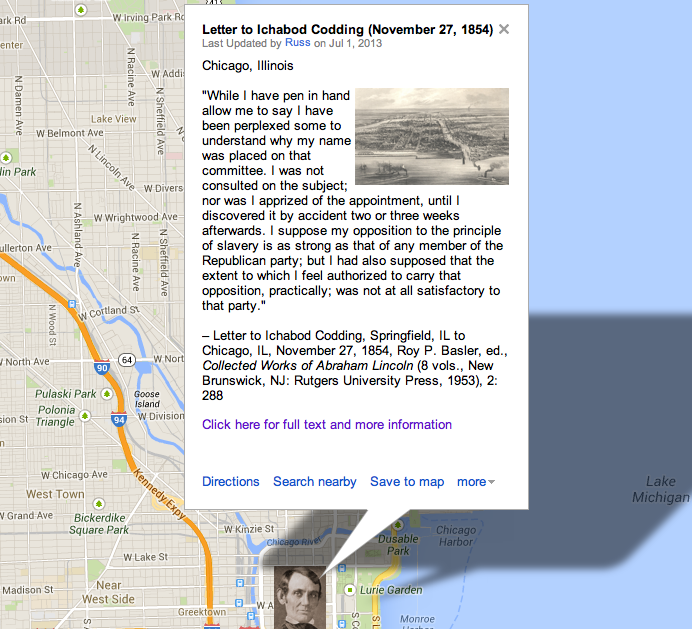Ranking
#124 on the list of 150 Most Teachable Lincoln Documents
Annotated Transcript
On This Date
HD Daily Report, November 27, 1854
The Lincoln Log, November 27, 1854
Custom Map
How Historians Interpret
“Lincoln advised Whigs to ‘stand with anybody that stands RIGHT,’ even if it meant standing with the ‘abolitionist in restoring the Missouri Compromise,’ suggesting that there were moments when principle must overcome party. His words were put to a test almost immediately. . . The fusionists placed his name on the Republican State Central Committee, even though some of them expressed doubts about the sincerity of his views on slavery. The Douglas press gleefully pounced on the action as proof that Lincoln was an abolitionist after all. Deeply annoyed and perplexed, Lincoln protested that his name had been used without consulting him first. ‘I suppose my opposition to the principle of slavery is as strong as that of any member of the Republican party, he explained to Ichabod Codding, ‘but I had also supposed that the extent to which I feel authorized to carry that opposition, practically, was not at all satisfactory to that party.’ His response was equivocal; this time, political expediency overcame principle. Still, he did not ask that his name be removed, and he only implied that he was unwilling to serve. Perhaps the Republicans had misunderstood his position, he suggestion. Or had he misunderstood theirs? He was unwilling to commit himself to their cause, but he did not want to alienate them either.”
NOTE TO READERS
This page is under construction and will be developed further by students in the new “Understanding Lincoln” online course sponsored by the House Divided Project at Dickinson College and the Gilder Lehrman Institute of American History. To find out more about the course and to see some of our videotaped class sessions, including virtual field trips to Ford’s Theatre and Gettysburg, please visit our Livestream page at http://new.livestream.com/gilderlehrman/lincoln

